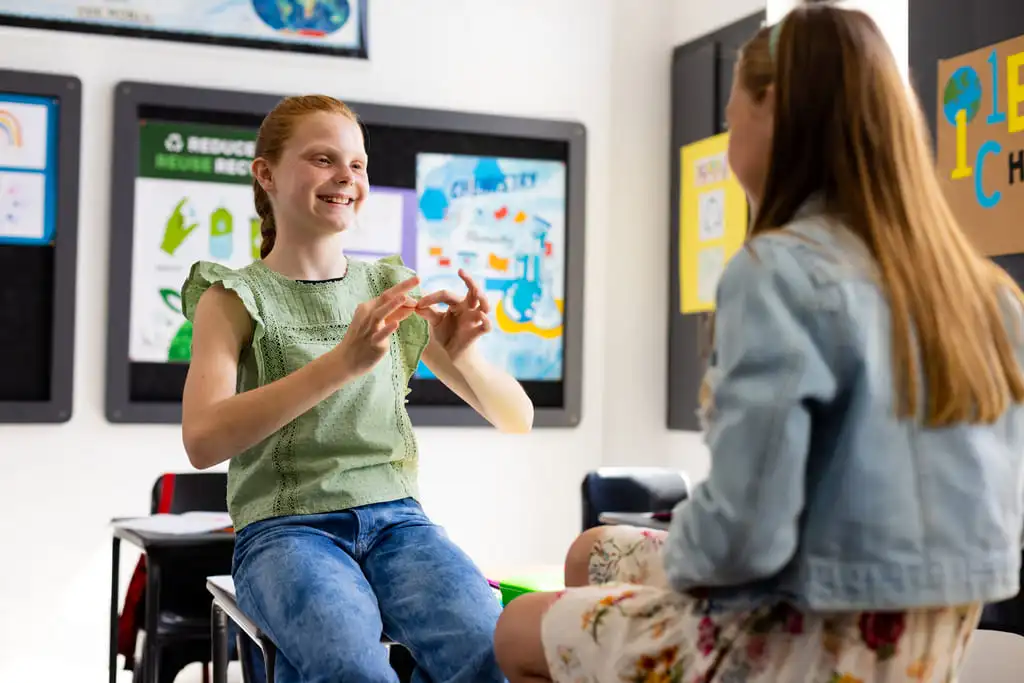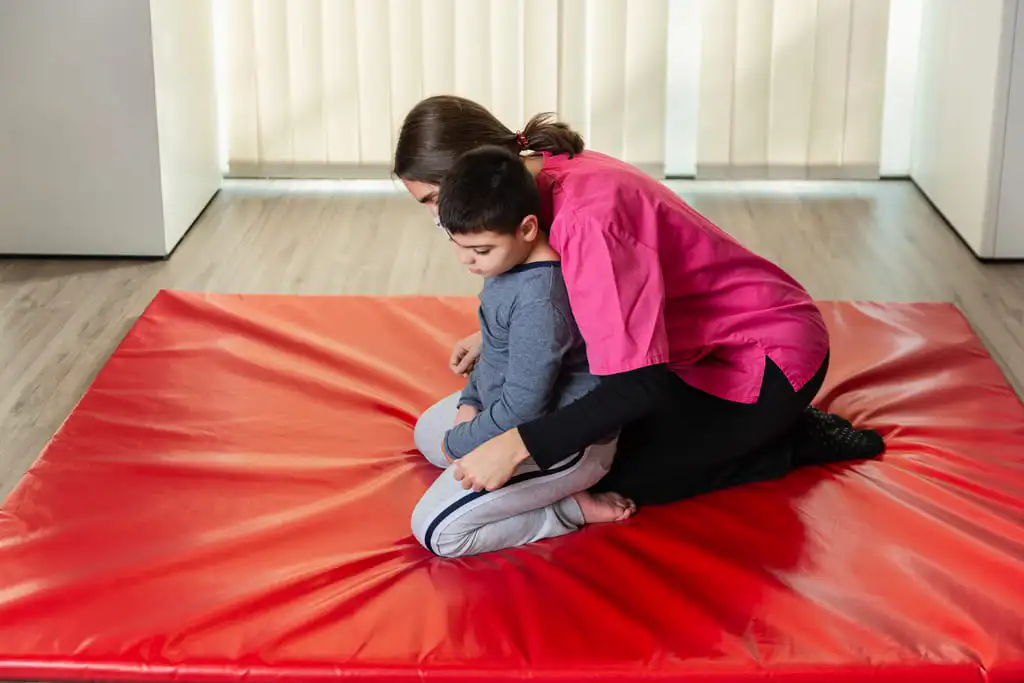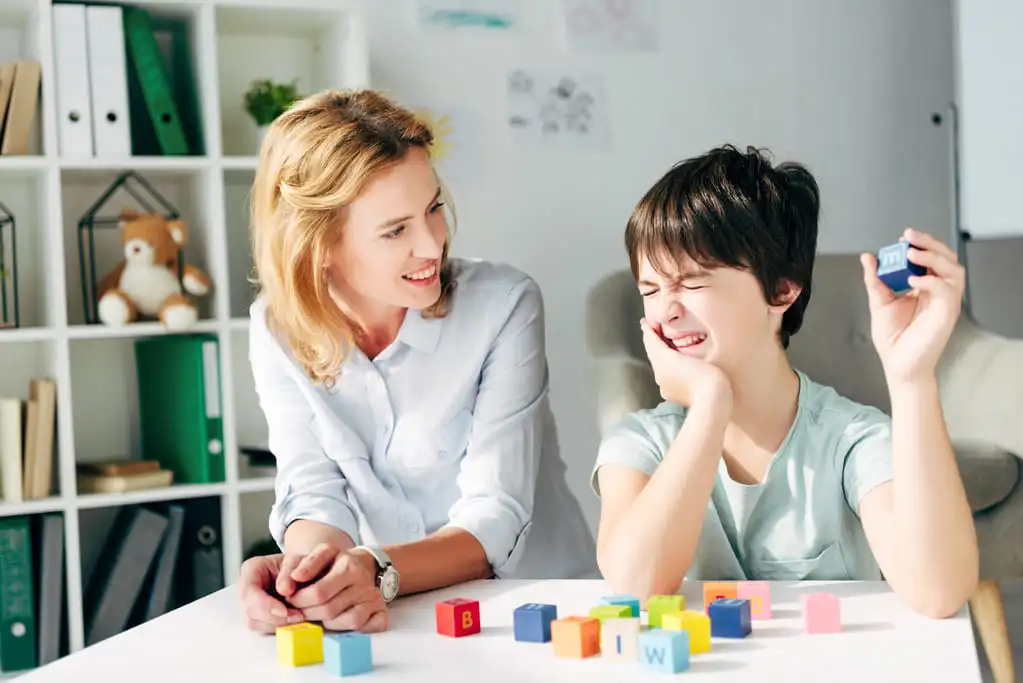Who Is In Our Expert Therapy Team?
Our in-house multidisciplinary therapy team consists of highly qualified professionals who work collaboratively to provide person-centred care with a primary focus on reducing restrictive practices.
Our therapist team includes professionals from various fields, such as:
- Positive Behaviour Support (PBS) Practitioners
- Occupational Therapists
- Speech and Language Therapists
Our team members bring a wealth of experience from various sectors, including the NHS and the National Autistic Society. They are highly qualified in Positive Behaviour Support (PBS), with a focus on PROACT-SCIPr-UK® and the PERMA model for well-being. This diverse expertise allows us to provide comprehensive therapeutic care, ensuring that we meet each person’s unique physical or mental health needs.
We emphasise reducing restrictive practices and improving independence through tailored interventions and therapies. The team works collaboratively with the people we support, their families, and other healthcare professionals to develop strategies that address behaviours of concern, enhance daily living skills, and foster effective communication. Our support extends to using advanced tools like multimedia avatars, visual communication aids, and teletherapy, ensuring we can meet diverse communication needs and support people in achieving their life goals.

What Can We Help With
Our therapy team at Leaf Complex Care provides a wide range of support designed to meet the unique needs of each person. We specialise in Positive Behaviour Support (PBS), occupational therapy, and speech and language therapy, all aimed at enhancing quality of life and promoting greater independence for the people we support.
We help young people and adults manage their own behaviours of concern through evidence-based practices and proactive strategies, reducing the need for restrictive interventions.
Applying the PERMA model for well-being and the Capable Environments Model is integral to everything we do.
Language and Speech Therapy
Our speech and language therapists’ support is vital in enhancing communication skills and addressing language difficulties. They work closely with each person to develop tailored communication strategies that promote independence and improve the overall quality of life.
The primary focus of our speech and language therapists is to assess and understand the specific communication needs of each person. They then design and implement personalised intervention plans that may include techniques for improving verbal communication, developing alternative communication methods, and addressing any language delays or disorders.
To provide the right support, our speech and language therapists use a variety of specialised tools and techniques they have found to be effective and humanising, include, but not limited to:
- AAC (Augmentative and Alternative Communication, such as electronic communication aids and apps, pictures, symbols, signing, and objects of reference)
- Talking Mats
- Intensive Interaction
- Comic strip conversations
- Communication profiles
- Sensory Stories
- Easy read information
- Joined up working with Proactive and Positive Behaviour Support practitioners, occupational therapists or local NHS and social care services
- Safe Swallowing Awareness training for practitioners in Mental Health, Learning Disabilities and Dementia
⇒ Learn more about Oral/Written Language Disorders and Specific Reading Comprehension Deficits.
Positive Behaviour Support (PBS)
Our Positive Behaviour Support (PBS) practitioners are dedicated to providing individualised and evidence-based support to manage and reduce behaviours of concern. They utilise a person-centred approach, beginning with functional assessments to understand each person’s strengths, preferences, needs, and desired outcomes.

This process involves gathering detailed information about the antecedents, behaviours, and consequences (ABCs) to identify the underlying functions of behaviours and develop effective support strategies.
To provide the right support, our PBS practitioners employ a variety of tools and techniques, including:
- Functional Behavioural Assessments (FBA) – Systematic approach to identify the triggers and functions of challenging behaviours.
Cognitive Behaviour Assessment Tools – Tools to assess and address cognitive processes related to behaviours.
Direct Observation Tools – Methods for observing and recording behaviours in different settings.
Environmental Assessments – Evaluations of a person’s surroundings to create supportive and capable environments.
Data Collection Tools – Behaviour rating scales and other instruments to track and analyse behaviour patterns.
Proactive and Calming Strategies – Techniques to prevent the occurrence of behaviour that challenges, including calming methods.
Trauma-Informed Care via the PACE Model – An approach that emphasises Playfulness, Acceptance, Curiosity, and Empathy to support people with a history of trauma (related to post-traumatic stress disorder and generalised anxiety disorders).
Mindfulness Techniques – Practices to help people manage stress and improve emotional regulation.
Role Playing – Simulation exercises to practice and reinforce positive behaviours and social skills.
Teletherapy – Remote therapy sessions to provide support and interventions through digital platforms.
By integrating these tools and methods, our PBS practitioners ensure that the support provided is tailored to meet each person’s specific needs, promoting positive outcomes and enhancing their overall quality of life.
⇒ Learn more about Positive Behaviour Support (PBS): How it Works
Occupational Therapy
Occupational therapists (OTs) are integral to helping people achieve greater independence and improve their low self-esteem. They work collaboratively with people’s families, carers, and healthcare professionals to address physical, psychological, cognitive, and environmental challenges that affect daily living. OTs use a holistic and evidence-based approach to understand how these factors impact a person’s ability to perform meaningful activities, such as self-care, leisure, and productivity.
To provide the right support, occupational therapists utilise a variety of tools and interventions:
Assessment Tools – Initial and further assessments, including sensory profiles, community assessments, and home environment assessments.
Adaptive Equipment – Sensory aids (e.g., chew aids), physical aids (e.g., perching stools), and developmental delay aids (e.g., adapted devices) to support daily living activities.
Activity Planners – Structured routines to promote engagement in meaningful activities and improve daily living skills.
Fine and Gross Motor Skill Development – Exercises and activities to enhance physical capabilities, including motor skills and coordination.
Social and Cognitive Skills Development – Interventions to improve social interactions, cognitive functions, and emotional regulation.
Therapeutic Rapport Building – Establishing trust and understanding motivations to tailor interventions better.
Communication Tools – Utilising verbal prompts, physical support, and visual aids to facilitate effective communication.
⇒ Learn more about The Role of Occupational Therapy in Addressing Global Developmental Delay.
British Sign Language Support
Our specialist teams are highly trained in British Sign Language (BSL), ensuring they can effectively communicate with and support people who use BSL as their primary mode of communication. This skill enhances our ability to provide comprehensive and inclusive care. It allows us to meet the diverse communication needs of the people we support and ensure everyone has a voice in their care and therapeutic process.
Importance of Personalised Support from Our Therapist Team
Each person has unique needs, preferences, and goals, requiring a tailored approach to their support. Our therapists take the time to understand these individual requirements, ensuring that the care provided is not only effective but also meaningful and empowering. This personalised approach enables us to build strong relationships with those in our care, fostering trust and collaboration in the therapeutic process.

Furthermore, personalised support helps our therapist team to address specific challenges and behaviours more effectively. By understanding the person’s communication style, sensory sensitivities, and personal interests, our therapists can create interventions and strategies that resonate with the individual, increasing the likelihood of positive outcomes. This tailored service approach also promotes a sense of autonomy and dignity, as people feel respected and valued for who they are, enhancing their overall well-being and quality of life.
Get Specialised Therapy Support with Leaf Complex Care
Our dedicated therapist team is here to provide tailored and compassionate therapeutic support for people in need of humanised care. Whether you’re seeking support for behaviours of concern, communication difficulties, or sensory processing difficulties, our team is highly trained in evidence-based practices to help you or your loved one achieve personal growth and improved quality of life.
Hear what Richard’s parent have to say about their son’s journey of living life on his own terms through proactive treatment and PBS strategies.
Read the full case study: Richard’s Care Journey
Crisis Support
To meet people’s mental health needs in challenging times, we have developed our Rapid Response Service which provides urgent, high-quality support for people experiencing crisis or urgent need. Our dedicated team and mental health services are available 24/7 to deliver expert care and stabilisation, ensuring safety and continuity of support during critical times.
Our offices are located in Bristol, South East, Birmingham and Somerset.
We deliver our services across the UK.
Contact Us
If you or someone you know could benefit from specialised therapy support, contact Leaf Complex Care today to learn more about our services and how we can help you thrive.

